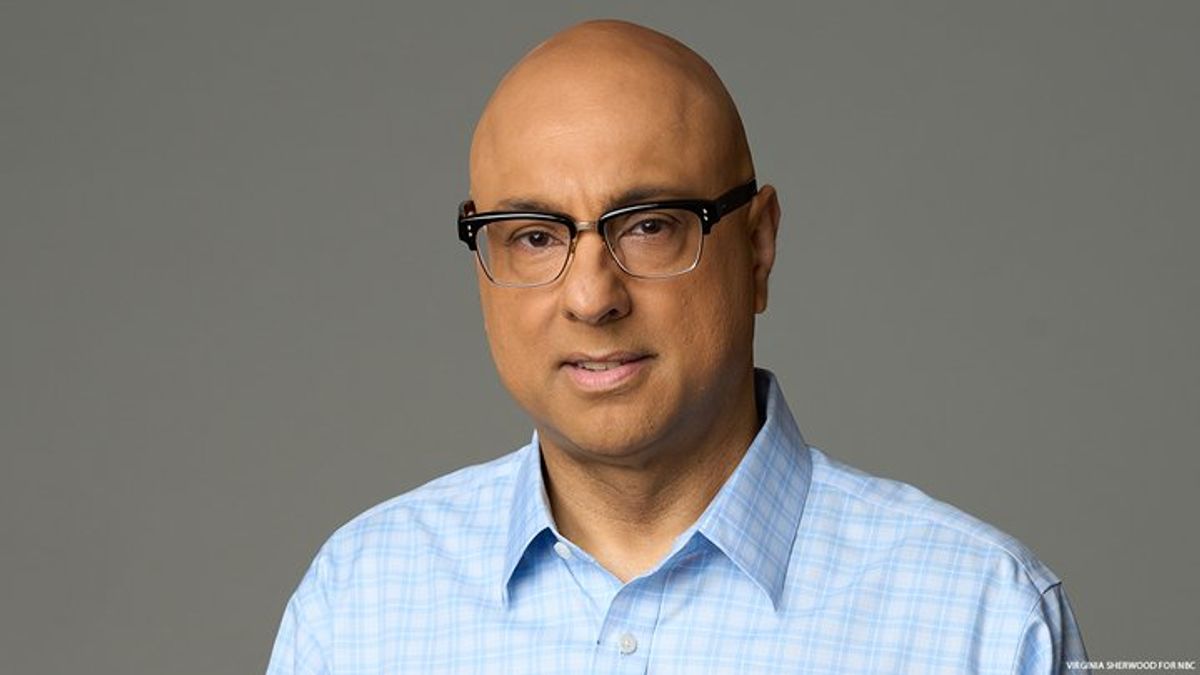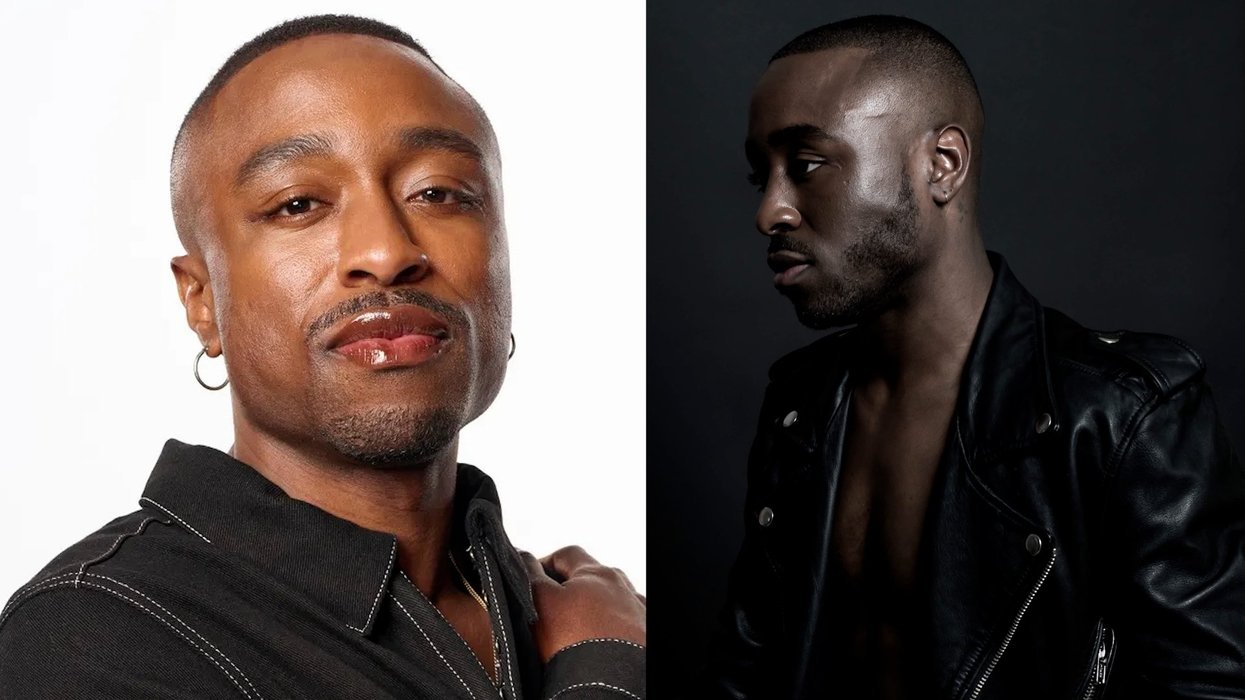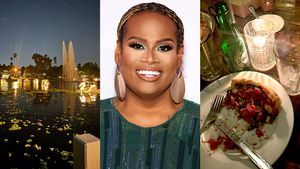More than 75 percent of Americans oppose banning books from libraries and schools, according to a recent poll by the Every Library Institute. But that hasn't stopped the wave of book bans popping up across the country, the majority of which target books featuring LGBTQ+ or Black characters or themes.
MSNBC’s Ali Velshi has been working to raise awareness about the rise and ridiculousness of book bans. During his weekend morning show, Velshi, and through a podcast he started, Velshi Banned Book Club, the MSNBC staple and host shines a light on books that have been banned by speaking to the authors, garnering their reactions, and discussing why banning the books is a bad idea.
“The impetus for this actually came about some years ago. I had been introduced to Nicole Hannah Jones, who had written the 1619 Project for The New York Times Magazine,” Velshi recalled. “I didn’t know a thing about the 1619 Project, and she came on my show, and I thought to myself, what a wonderful thing that she's introduced this to me and our viewers, but what a tragedy that so much of the history of slavery is trying to be erased.”
In the past year, there has been a 33 percent increase in book bans in public schools, according to a PEN America Report. And while California Gov. Gavin Newsom signed a bill into law recently that would prohibit book bans, legislators in Pennsylvania’s House failed last week to pass a similar bill. And in Texas, an appeals court ruled that the state can go ahead with a book ban.
Velshi said the rise in book bans and legislation surrounding it is part of the reason he started his podcast.
“So the impetus was all these books that were starting to get challenged or banned or removed from libraries, I wanted to highlight those for my audience in places where they weren't being banned," Velshi told me. "But just to let them know why. And I wanted to speak to the authors of those books themselves.”
I mentioned to Velshi how ridiculous banning books is and relayed the story about the boys in my neighborhood hiding Playgirl magazines in the woods, where we would all go and leaf through them. In 2023, kids have social media, and they're much more tuned in. So, if these books are banned, won’t kids find a way to read them?
“That is a very important point you make,” Velshi replied. "There is no argument by any librarian or any teacher or any author that somehow we are going to subvert the system and hide books about being Black or queer, for example, to your children. This is an argument about the availability of books, the universal availability of books, and where the decision-making should come from those who read those books. I think, under my casual read of the United States Constitution, that should not fall to the state, meaning the federal government, the state government, your school board, nor your library. That should be a parental discussion in concert with a librarian in concert with a teacher."
Velshi noted that many of the books being challenged in libraries and schools are about being queer or Black or Hispanic, or about being sexually assaulted or growing up in the Holocaust.
"They fired a teacher in Texas for reading a graphic novel version of Anne Frank because it made people uncomfortable," Velshi said. And in Florida, you can't read Romeo and Juliet cover to cover because it's got sexual content.”
Velshi noted that it's important to allow children to read these books in their proper context, by authors who have taken great care to write them.
“That's the point here. I'm not trying to shove anything down anybody's throat. You don't want to read it? Absolutely, don’t read it. You have the choice of not reading anything you don't want to read," he said.
What has the reaction been to Velshi telling the stories of banned books?
“It is really very helpful to the sales of these books," Velshi said. "Some of these bans are just downright weird, right? These books have been around forever. There are people who don't like books like Huck Finn or To Kill a Mockingbird because of the racist references. They use words that a lot of Black parents would rather not have their kids subjected to dozens and dozens of times over the course of a reading of a book. All of it is worthy of discussion. None of it is worthy of banning -- all of it is worthy of discussion to say to a teacher, look, you've got a lot of different kids in your class. The subject matter is complicated and it's hard.”
One critical reason not to ban books, Velshi said, is that some of these books are saving lives.
“I have authors who have told me that they've received emails from kids who said they were thinking about taking their own lives. They felt so outside, and then they read this book, and it sounded exactly like their experience, and they felt accepted," Velshi said. "And they felt whole, and they felt heard. And they felt like there was a future."
The only way to counter these bans, according to Velshi, is for parents to become involved.
“I think these conservative groups like Moms for Liberty are actually spurring a counterrevolution that is much bigger and much stronger; however, it depends on people actually doing something," Velshi said. "We must vote. We have to go to our school board meetings or run for a spot on the school board or your Parent Teacher Association, or even run for city council. This is citizenship at its basics. Those like Moms for Liberty are helping us understand what our roles are as citizens.”


















































































Grammy-nominated Chappell Roan has four-word response to management split story